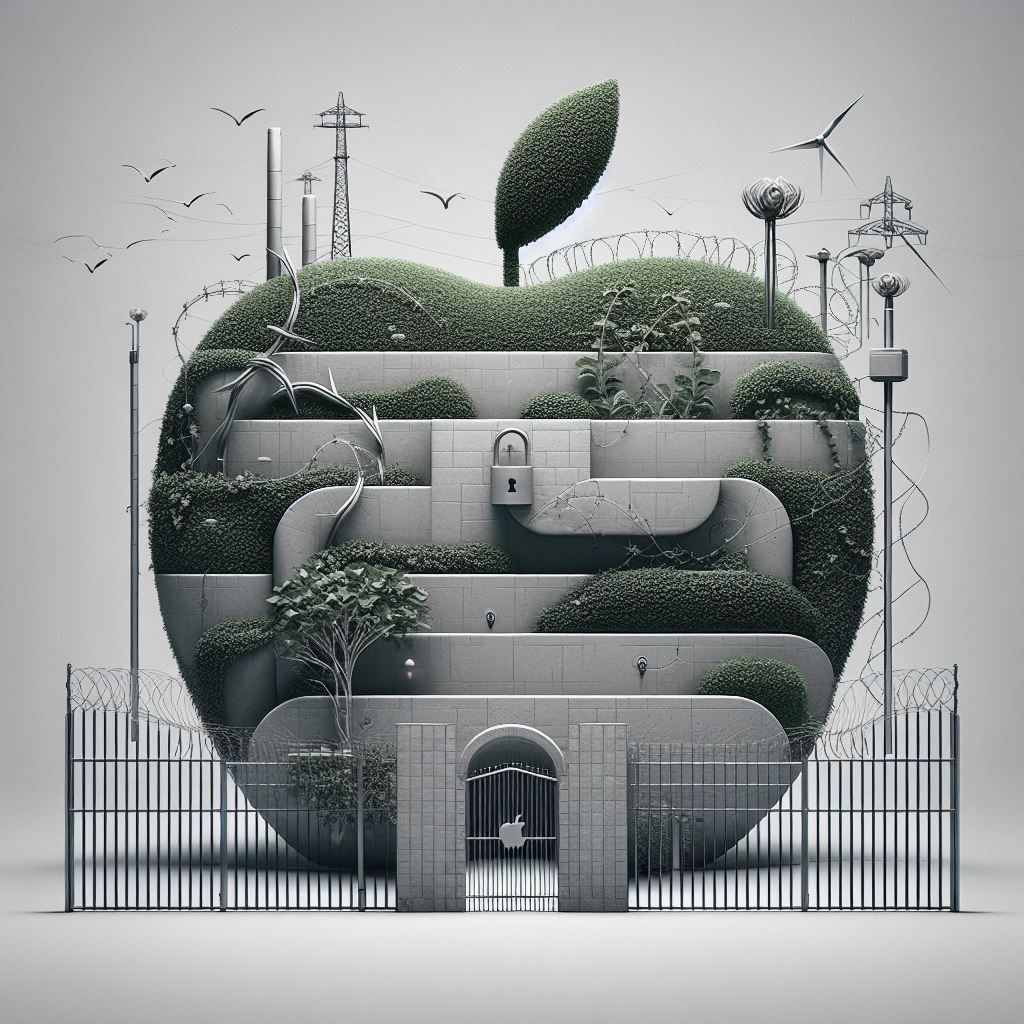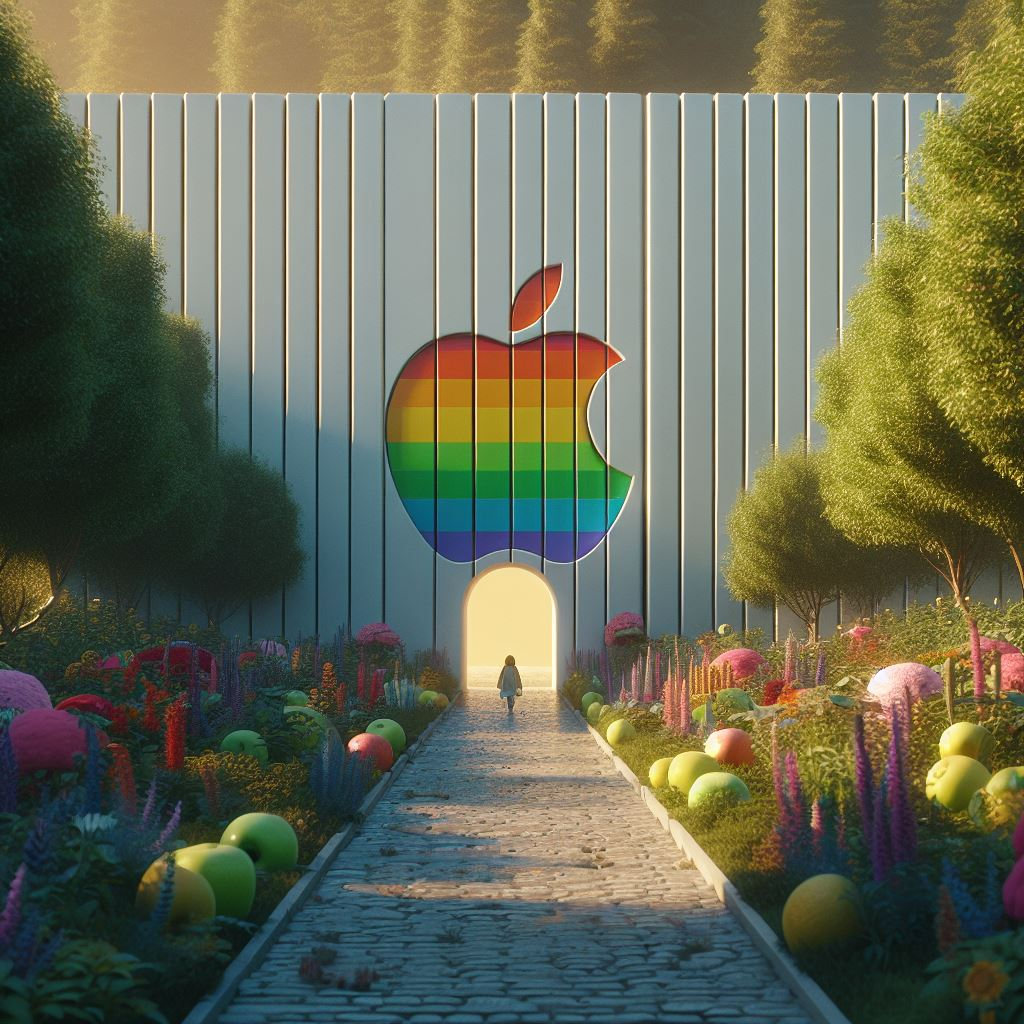
Apple’s walled garden, an iconic metaphorical representation of the company’s business strategy, has been a topic of hot debate among tech enthusiasts and industry experts alike. Designed to keep users ensconced within the Apple universe, this ecosystem is a double-edged sword.
On the one end, it offers a seamless, integrated experience across the various Apple devices – iPhones, iPads, MacBooks, Apple Watch, and more.
On the other, it restricts their freedom to explore services, applications, and products outside the Apple ecosystem, thereby limiting choice and competition. However, recent events have begun to dismantle this metaphorical wall, brick by brick. This blog will delve deep into these events and examine their profound impact on Apple’s long-standing approach.
The Epic Games Lawsuit: A Significant Blow

One of the most significant bricks removed from the fortified walls of Apple’s garden is the Epic Games lawsuit. In a landmark case, the gaming giant filed a lawsuit against Apple, accusing it of monopolistic and anti-competitive practices on its App Store, a critical component of the walled garden. The fallout of this lawsuit was dramatic, with a US judge ruling that Apple must allow app developers to direct users to payment options outside the App Store, shattering one of the key principles of Apple’s walled garden. This unprecedented event marked a potent blow to the previously impenetrable walls of Apple’s ecosystem, signalling a potential shift in the balance of power.
Regulatory Pressure: The Walls are Crumbling
Another crucial factor in the dismantling of Apple’s walled garden has been the escalating regulatory pressure from various government bodies worldwide. For instance, in Europe, Apple’s stringent control over its ecosystem has attracted intense scrutiny from the European Commission, leading to several antitrust investigations. These probes have raised critical questions about the fairness of Apple’s practices, putting additional pressure on the tech giant.
In South Korea, the government has passed a groundbreaking law forcing tech behemoths like Apple to open up their app stores to other payment systems, dealing another harsh blow to the walled garden. As these regulatory moves have chipped away at the walls of Apple’s garden, it is clear that the company’s control over its ecosystem is not as absolute as it once was.
User Demand for More Freedom: Eroding the Garden Walls

The shift in user demand is another factor contributing to the erosion of Apple’s walled garden. Today’s tech-savvy users are increasingly demanding more freedom, flexibility, and choice regarding their digital experiences. They want to choose from a wider range of apps, services, and payment methods, and they want these choices to be easy and seamless.
This growing demand has compelled Apple to introduce features like the ability to select default apps for email and browsing, something that was previously unthinkable within the confines of the walled garden. Although these changes may seem minor, they represent a significant shift in Apple’s strategy and a step towards a more open ecosystem.
Conclusion: The Future of Apple’s Walled Garden

For years, Apple’s walled garden has been a cornerstone of its business model, setting it apart from competitors, driving user loyalty, and contributing significantly to its financial success. However, recent events, from lawsuits and regulatory pressure to changing user demands, have begun to dismantle this wall, piece by piece. Let’s explore some aspects of what lies ahead:
- Tighter Integration: Apple will likely enhance the integration between its various products and services.
- Behavioral Cycles: Apple’s fortunes are tied to the careful construction of behavioral cycles.
- Proprietary Services: Apple’s proprietary apps, such as iMessage, Safari, Apple News, and Apple Music, will continue to receive attractive features.
- Stratification: Apple’s messaging service, iMessage, creates a digital social class distinction with its blue bubbles.
- Opening Up?: Interestingly, there have been reports that Apple might open up some of its private APIs to outside competitors and embrace external payment systems.
The evolving landscape signals that Apple may need to adapt its strategy to maintain its position in the cut-throat tech market. While it’s too early to predict the full impact of these changes, it’s safe to say that the future of Apple’s walled garden is looking less certain and more dynamic than ever before. As we continue to monitor these developments, one thing is clear: Apple’s walled garden, once a symbol of the company’s invincibility, is under siege – and only time will tell how this will reshape the tech landscape.
